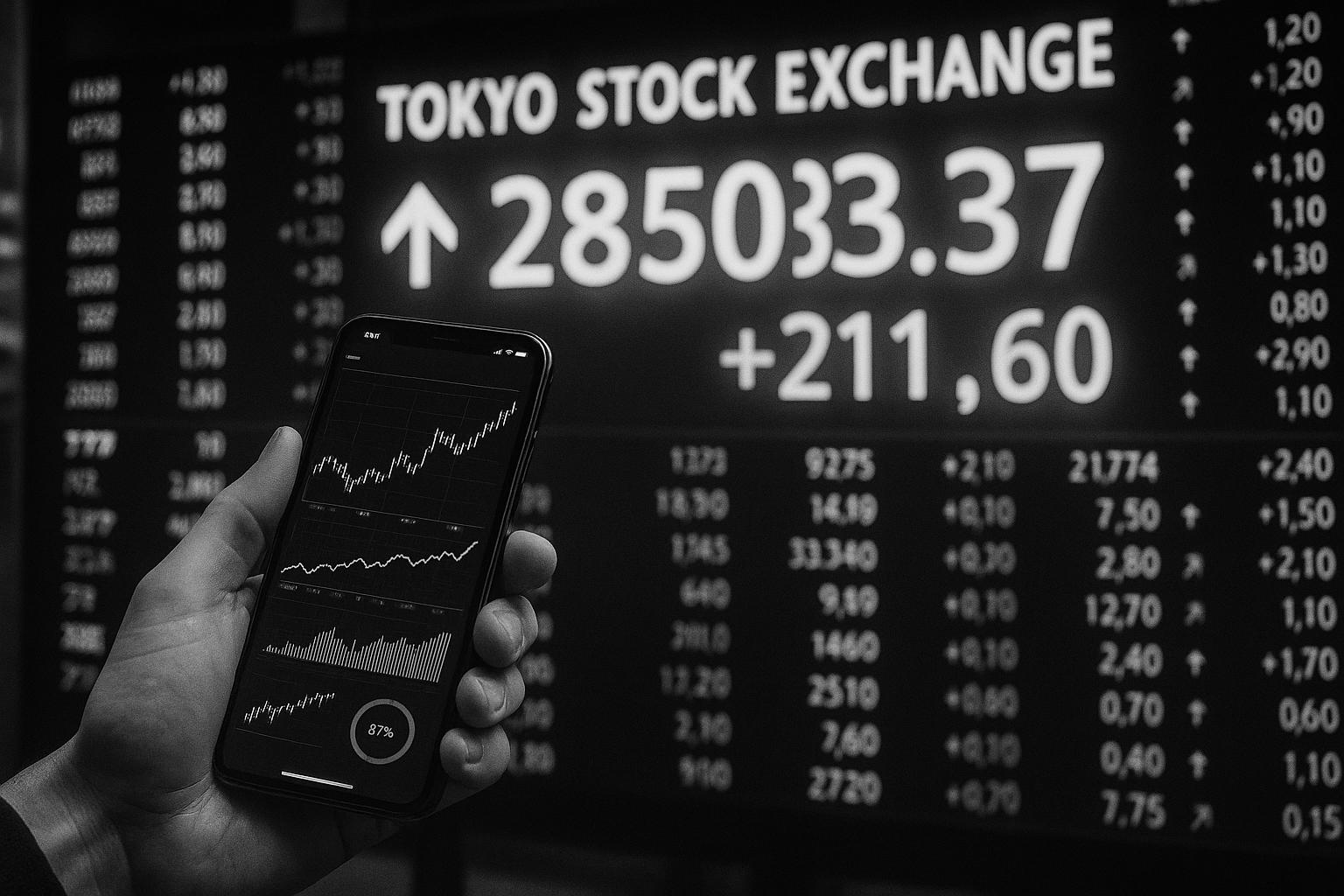Asian share markets are poised to close a pivotal week positively, buoyed by widespread anticipation of further monetary stimulus amid global economic uncertainties. Japan's Nikkei, in particular, reached another record high, climbing 0.7 percent, reflecting investor confidence that the Bank of Japan (BOJ) will maintain its accommodative monetary policy. This outlook is shaped by ongoing domestic political uncertainties and the upcoming Liberal Democratic Party leadership election on October 4. Core inflation data in Japan, showing a 2.7 percent year-on-year rise for August—the slowest in nine months but still above the BOJ's 2 percent target—has reinforced expectations that the central bank will delay any rate hike until the political landscape clarifies.
This week saw key central banks take varied approaches: the U.S., Canada, and Norway each cut interest rates, while the Bank of England kept its benchmark unchanged at 4 percent. According to global macro strategists, policymakers remain cautious amid economic uncertainty, limiting surprises with a general anticipation of additional rate cuts in the near future. South Korea's market retreated slightly but stayed near record highs, with weekly gains pushing the index up nearly 8 percent over the past two weeks, indicative of strong regional momentum amid cautious optimism.
Global markets have also been shaped by significant developments in the U.S., where stock indices such as the S&P 500, Dow Jones, and Nasdaq closed at record highs, supported by robust jobless claims data and notable corporate news, including Nvidia's pledge of a $5 billion investment into Intel. This announcement propelled Intel shares up 23 percent and Nvidia by 3.5 percent, boosting tech sector confidence. Despite the cautious monetary stance, U.S. Treasury yields hovered around 4.11 percent, suggesting that investors remain watchful of inflation and growth indicators.
Currency markets reflected these dynamics, with the U.S. dollar regaining some ground after a recent slide following the Federal Reserve's first rate cut in nine months. The dollar index steadied near 97.42, recovering from a multi-year low. Meanwhile, the Japanese yen held steady around 148 per dollar, though analysts noted that political developments, including policy signals from LDP leadership candidates like Sanae Takaichi, could soon influence the yen's trajectory, given her inclination towards continued accommodative fiscal and monetary policy. The Norwegian crown weakened following the Norges Bank’s rate cut, while the British pound slipped amid the Bank of England’s decision to maintain rates.
In Asia, broader MSCI indices showed mixed but overall positive sentiment, with the Asia-Pacific shares outside Japan inching up 0.5 percent for the week, hovering near four-year highs. Chinese blue chips rose modestly ahead of a high-profile phone call expected between U.S. President Donald Trump and China’s Xi Jinping, amid ongoing tensions surrounding tech policies and trade issues like TikTok negotiations and restrictions on AI chip acquisitions. Hong Kong's Hang Seng index moderated slightly in advance of the call, reflecting investor caution.
Commodity markets remained relatively stable, with oil prices steady following a recent dip, and spot gold holding firm near record levels. Both markets reflect ongoing uncertainty and cautious positioning ahead of key global policy decisions and economic data releases.
Overall, the week underscored a landscape where central banks are navigating the fine balance between supporting growth and containing inflation, while investors remain alert to geopolitical developments, political uncertainties, and macroeconomic signals. This delicate interplay will likely continue to influence market sentiment in the coming weeks.
📌 Reference Map:
- Paragraph 1 – [1], [2], [4]
- Paragraph 2 – [1], [2], [3]
- Paragraph 3 – [1], [2], [7]
- Paragraph 4 – [1], [2], [5]
- Paragraph 5 – [1], [2], [6]
- Paragraph 6 – [1], [2]
Source: Noah Wire Services
